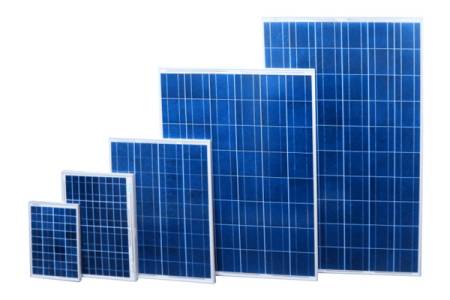Description
Polycrystalline Solar Cells: Affordable Solar Power for Your Needs
Polycrystalline solar cells, also known as multicrystalline solar cells, are a popular and cost-effective choice for solar energy generation. Unlike their monocrystalline counterparts, they are manufactured from silicon ingots that are solidified from molten silicon, resulting in a slightly less efficient, but significantly more affordable, solar cell. This makes them an ideal solution for a wide range of applications, from residential rooftops to larger-scale solar farms.
Key Features & Benefits:
- Cost-Effective: The manufacturing process for polycrystalline solar cells is simpler and less energy-intensive than monocrystalline cells, resulting in a lower cost per watt. This makes them a highly accessible option for budget-conscious consumers and businesses.
- High Efficiency: While not as efficient as monocrystalline cells, polycrystalline cells still boast respectable efficiency rates, typically ranging from 15% to 17%. This means they can still generate significant amounts of clean energy.
- Widely Available: Due to their widespread adoption and relatively simple manufacturing process, polycrystalline solar cells are readily available from a variety of suppliers, ensuring competitive pricing and easy accessibility.
- Durable & Reliable: Polycrystalline solar cells are robust and durable, capable of withstanding various weather conditions and maintaining consistent performance for many years. They are designed to endure harsh environments, ensuring long-term reliability.
- Versatile Applications: Suitable for a variety of applications, including:
- Residential rooftops: Ideal for homeowners looking to reduce their electricity bills and carbon footprint.
- Commercial buildings: Cost-effective solution for businesses aiming to decrease energy costs and improve sustainability.
- Utility-scale solar farms: Contribute to large-scale renewable energy projects.
- Off-grid power systems: Provide reliable power in remote locations.
Technical Specifications (Typical Values):
- Efficiency: 15% - 17%
- Cell Type: Polycrystalline Silicon
- Material: Silicon
- Operating Temperature Range: -40°C to +85°C
- Warranty: Typically 10-25 years (manufacturer dependent)
Appearance:
Polycrystalline solar cells have a distinctive blueish-grey appearance with a speckled texture. This is a result of the multiple silicon crystals within the cell. This texture does not affect the performance of the cells.
Comparison to Monocrystalline Solar Cells:
While monocrystalline cells offer higher efficiency, polycrystalline cells compensate with their lower cost. The choice between the two depends on individual needs and budget priorities. Polycrystalline cells are a great option for those seeking a balance between cost and performance.
Conclusion:
Polycrystalline solar cells represent a compelling solution for those seeking affordable and reliable solar power. Their cost-effectiveness, durability, and widespread availability make them a popular and practical choice for various applications. If you're looking to harness the power of the sun without breaking the bank, polycrystalline solar cells are a strong contender.
